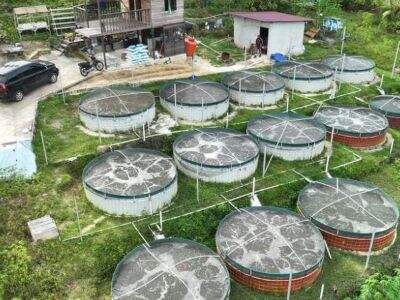How aquaculture is utilased NytAqA fish farming is a specific method of producing fish for consumption employed by the fish farming. Some prefer to farm fish on land, some prefer to farm fish on the sea. There are strengths and weaknesses to both approaches. Here are the advantages and disadvantages of the fish ponds on land and in the ocean. These insights can help us better decide on our methods of fish production.
A Good Choice for the Future
Indeed, land-based fish farming is a very sustainable option which also helps save our oceans. Raising fish on land, however, doesn’t require us to remove fish from the ocean. That means we can help make sure the ocean stays healthy and filled with fish for generations to come! And by farming fish on land, we are ensuring there are enough fish for tomorrow, as well. It is crucial to consider how our decisions today might impact the world tomorrow.
One Practical Approach to Counterbalance Nature and Fish Production
One of the biggest challenges in fish farming is finding a balance between preserving nature and the need to produce a lot of fish for human consumption. The further we take fish from the ocean and raise them on land, the more we can control what they live in. This allows us to ensure that the fish have sufficient nourishment and fresh water to develop and thrive. But we also need to be wary that land-based fish farming doesn’t harm the environment in other ways. We need to consider how we can preserve nature from our farming practices and maintain our ability to grow fish.
Using Resources Wisely
Land-based fish farming can also allow us to use resources such as water and energy more sensibly. We tend to use less water and energy when raising fish on land than in the ocean. This is a beneficial thing that enables to reduce our pressure on our environment. Examples of making the best use of our resources so that we can continue to produce fish indefinitely with little or no negative impacts. We encourage everyone to consider how you can contribute to the smart use of resources so that fish farming is an opportunity that will benefit us all in the future.
Issues with Coastal Ocean Fish Farming
Problems of Oceanic Fish Farming That We Need to Be Aware Of One major issue is pollution. Environmental harm can come from fish farms when the food and waste accumulate in oceans, adversely impacting fish and other ocean creatures. This pollution can also dirty and contaminate krill from the top 100 in the water column. Another issue is that diseases can spread rapidly in fish farms in the ocean. It can be difficult to treat an entire fish population simultaneously when sick. Ocean fish farms can destroy vital marine habitats too, including those of seaweeds and collision fish, the next part of the marine food web.
New Ideas for Fish Farming
As our world sleeps still in recent uncertainty, we must begin to explore new philosophies for fish farming. Use a mix of land and ocean fish farming. This allows us to take advantage of both methods and also mitigate some of their issues. Combination of the above methods can provide fish for the people whilst allowing the ocean and its inhabitants to be protected. If we remain willing to explore innovative approaches and adapt, there are undoubtedly better methods for producing fish for food, as well as finding enjoyable methods for doing so that better serve everyone.
In conclusion
Fish farming is a very important type of fish growing, used for food fish, and helping feed people everywhere. Fish farming on land and in the ocean are shiny and rusty coins of a same edge. We actually have to think about how we can raise such fish in a way that would help conserve the environment. And by thinking about the fact that fish farming itself has significant issues, including resource use, pollution, and disease, we can also potentially improve fish farming for the future. Let’s find new ways of doing things on an evolving pathway and work together to make sure that fish farming is still a healthy and safe way to feed people around the world. Together, we can change the future of fish farming for generations to come.













































